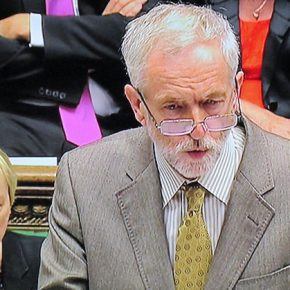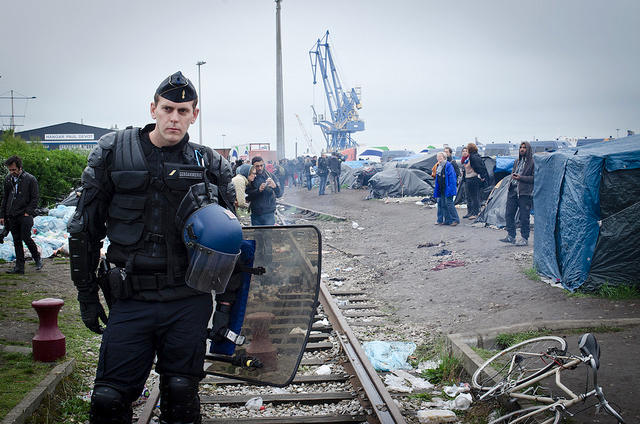It doesn’t require much insight to see that many of the Britons who voted “Leave” did so because they were anxious, and uncertain about their place in the world. But the reasons for their sense of insecurity and the appeal different potential solutions held for them still demand closer scrutiny.
The first point worth emphasising is that, while the vote was about the United Kingdom’s relationship with the European Union, it was inextricably bound up with larger problems of globalisation. Brexit was largely a conflict between liberal capitalists and a nationalist opposition. Like other populist movements around the world and particularly in Europe, the Leave campaign positioned itself as a rejection of a post-nationalist reality in which states cede most of their power to political and economic blocs presided over by bureaucrats with little investment in the linguistic and cultural identities that have traditionally justified national borders.
This is why globalisation has been defined by two complementary trends. The first is the ongoing unification of financial and industrial production and the concomitant dissolution of barriers to trade and immigration. The second, by contrast, reflects the anxieties that this internationalisation of everyday life inspires, coupled as it is to new forms of personal economic instability.
The Leave campaign was a conduit for the latter. “Vote Leave” became code for a new politics of control that has been gaining strength since Thatcherism. Although it has a specifically British inflection on the surface, its underlying logic is potentially universal, reacting to globalisation with a desire for cultural homogeneity – some would say “monotony” – and physical safety.
Sociologist Zygmunt Bauman writes in Wars in the Era of Globalisation that in globalisation, “unanchored trust permanently seeking shelter is a source of permanent anxiety.” Neoliberalism and globalisation work together to undermine old certainties, including stable workplaces, trustworthy governments, and homogenous cultural landscapes. The result is uncertainty, and individuals respond with growing demands for stability, certainty, and safety.
However, with the decline of mass movements, people are unable to see these desires reflected in a sincere political alternative to the status quo. Stability is impossible without seriously confronting the processes that are causing economic precariousness. Certainty is unrealistic without a tangible backlash against market-driven policies that hold people in contempt. As a result, the three demands become condensed into a disproportionate obsession with safety, which Bauman registers in everything from CCTV cameras, to sex offender databases, to controlled “fad diets.” It is not surprising that the War on Terror is happening in this context. The performance of endless war works in tandem with an accelerating demand for personal safety. The Leave campaign simply stepped in to spice that demand with xenophobia.
Of course, the Leave campaign wasn’t just about hating immigrants. It was also characterised by arguments about how funds not being sent to Brussels might be redirected to the benefit some of the United Kingdom’s more precarious constituencies. For example, promises to increase funding to the National Health Service now seem unlikely to ever materialise. Public exhaustion with Westminster was a factor as well. Resentment against an electoral system that ignores certain regions entirely helped drive Leave votes in Cornwall, and former industrial centres in Wales and northern England. Still, the arguments that most defined the campaign were xenophobic.
Globalisation has a dual character. It eventually melts the bases that support nationalism, by minimising state authority in favour of a unified global supply chain. But as a consequence, it also gives populists the opportunity to mobilise in response to that transformation. Bauman describes the way in which “explosive communities” respond to the insecurities of globalisation with notions of fraternity and national cohesion that are rooted in violence. The Leave campaign bolstered explosive communities that, in their hatred for immigration, proved how an increasingly violent nationalism might, at least in the short term, pose a viable challenge to neoliberal globalisation.
Nigel Farage’s anti-migrant poster is a perfect example. It reads “Breaking Point,” and shows a crowd of mostly non-European migrants, overtop of the phrase “The EU has failed us all.” It was effective because of how it implicitly juxtaposed the calm sameness of Britishness with the chaos of “uncontrolled immigration.” The EU gets identified with migrants, and a general sense of turbulence. Britain needs to leave the EU to take back control so that voters may feel protected from potential rapists.
At the very least, the United Kingdom’s departure from the European Union will lead to new immigration restrictions, with a sense of security deemed more important than the benefits of free trade and easy border crossings. This ranking of priorities is happening elsewhere. As terrified electorates turn inwards all over the world, militarised borders have become the strongest indicators of their anxiety. Balkan countries sealed migration routes last March. Border fences are rapidly being built between India and Bangladesh. Israel is building new barriers with Jordan to complement those with the Sinai Peninsula, and in the Palestinian territories. Donald Trump has made a wall between the U.S. and Mexico a major election issue.
Depending on how the next Prime Minister – likely Theresa May – negotiates Britain’s exit from the European Union, it could mark the beginning of a new Balkanisation in Europe (the “populist spring.”) Over time, this political energy could lead to a “Europe of Fatherlands,” beginning with fresh Austrian presidential elections this October, and an even more entrenched system of borders.
In the United Kingdom, the immediate consequences have been that George Osborne has taken steps to secure foreign investment with a potential tax cut on corporations to 15% (threatening the EU with a potential tax haven on its doorstep). Tory peer Lord Lawson has explicitly stated that Brexit is an opportunity to “finish the job which Margaret Thatcher started.” If he is correct, the problem is clear. Xenophobic politics can redirect feelings of displacement and precariousness, but they are unable to touch their root causes in neoliberal economics. The result is bound to be more intense anxiety.
Without significant popular resistance to this trend, the short-term outcome will be a parochial chauvinism and the false sense of safety that comes with stronger borders. It is entirely possible that the borders themselves could become new killing floors, that recall those of European imperialism and fascism. This is especially likely if migrants continue to be treated as the embodiment of cultural and institutional instability. In this scenario, violence against migrants would be used to smooth out the anxieties caused by neoliberal economics. Admittedly, this is just one possibility opened up by Brexit. But at this time, it is difficult to imagine more positive ones.
Photograph courtesy of threefishsleeping. Published under a Creative Commons License.





